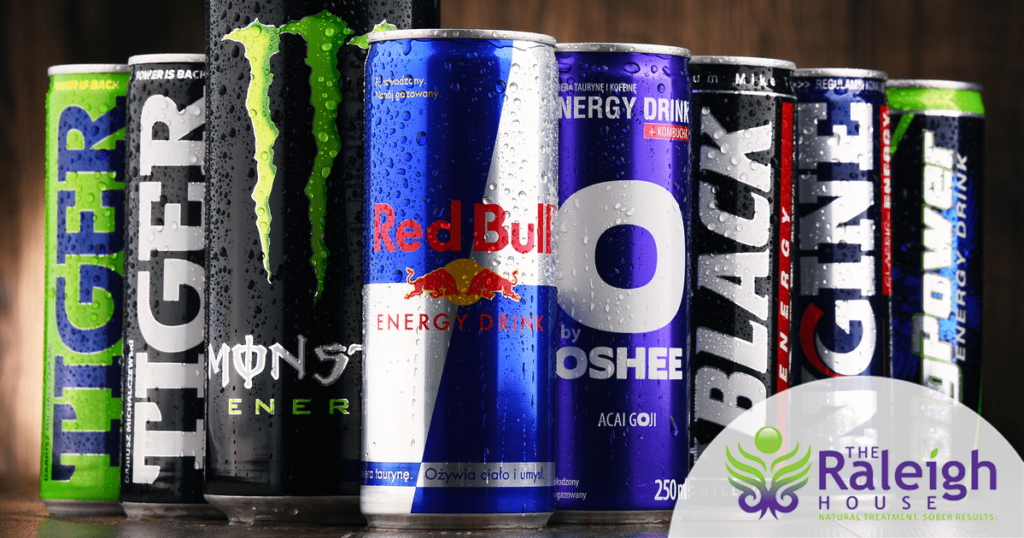
According to the National Institute on Drug Abuse, 9 out of 10 Americans consume some form of caffeine every day,
Caffeine use certainly isn’t limited to adults. Nearly 75% of kids, teens, and young adults also use it daily.
With such a high percentage of daily use, it’s no surprise that caffeine is the most widely used stimulant in the world.
While it’s true that caffeine doesn’t destroy lives like illicit drugs, it can lead to powerful addictions, at least according to one recent study.
Conducted in 2015 by neuroscientists at the University of Colorado at Boulder, the study found that long-term caffeine consumption during adolescence could enhance the sensitivity of the adult brain to cocaine.
So, what does that mean, practically speaking?
This is how Psychology Today answers that question: “By any definition, caffeine is clearly a gateway drug.”
What Is Caffeine?
Caffeine is a natural stimulant found in coffee, tea, chocolate, and some sodas.
Caffeine boosts alertness by blocking a sleep-promoting neurotransmitter.
It can improve focus and mood, but excessive consumption can cause restlessness and other side effects. Moderation is essential, and individual sensitivity and health should be considered before consumption, especially in teens and young adults.
So, is caffeine a drug? Yes, it is a stimulant. And while it’s generally safe for adults in reasonable amounts, the market has been flooded with many products designed specifically to increase energy.
What All Has Caffeine?
Regular coffee has between 95 and 165 milligrams of caffeine per 8 ounces.
Healthy adults can safely consume about 400 milligrams of caffeine daily, which equals three to four cups.
Tea, in comparison, has between 2 and 50 milligrams of caffeine. Cola has between 24 and 46 milligrams of caffeine. Milk chocolate contains between 3 and 6 milligrams per ounce, while dark chocolate can contain up to 20 milligrams per ounce.
So far, so good, right? All the items just mentioned contain reasonable amounts of caffeine.
The Growing Popularity of Energy Drinks Among Teens
Although you will find the occasional teen who drinks coffee, the bigger concern is the rise of energy drinks, making good old-fashioned soda seem like a healthy choice.
Compared to a can of Coca-Cola, with 34 milligrams of caffeine, an energy drink can contain anywhere from 100 to 300 milligrams.
According to Beverage Marketing Corp., energy drinks are one of the fastest-growing segments of the beverage industry, and they’re mainly targeted at teenagers and young adults. There is even a product called Cocaine Energy Drink, which contains a whopping 280 milligrams of caffeine per can.
In parts two and four of our series, we’ll explore the effects of caffeine on the mind and body and look at the link between caffeine and addiction, including how caffeine might affect those in recovery. Finally, we’ll explore alternatives to caffeinated beverages.
So, Should Teens Drink Energy Drinks?
According to the American Academy of Pediatrics, the answer to teens’ caffeine consumption is a hard “no.”
While energy drinks are a large part of the beverage industry, the American Academy of Pediatrics has a strong position against them, stating these drinks have “no place in the diets of children and adolescents.”
Why? Because as a 2019 study from the University of Colorado at Boulder suggests, long-term caffeine intake starting at a young age can influence the likelihood of a person’s substance use in adulthood.
Holistic Healing at The Raleigh House
Did a caffeine addiction lead to a more severe issue for you or a loved one? We can help.
The Raleigh House is a residential treatment center located in Denver that believes addiction isn’t just a physical problem.
Our master’s level trained therapists get to the root cause of addiction and will help you develop a strategy to manage and enjoy life without drugs or alcohol.
Fill out our form or contact us today to learn more about our 90-day drug and alcohol addiction treatment programs.




